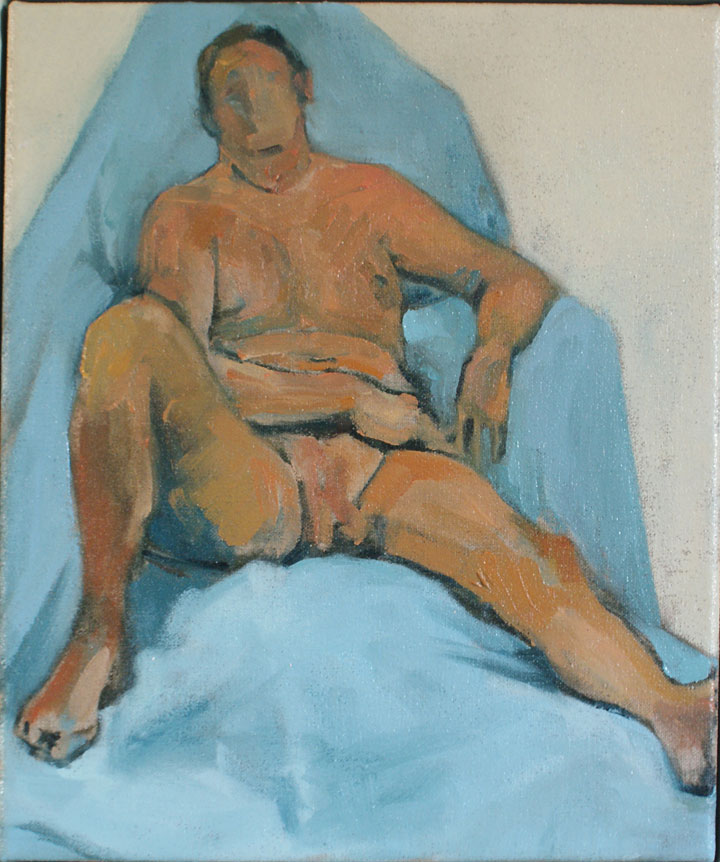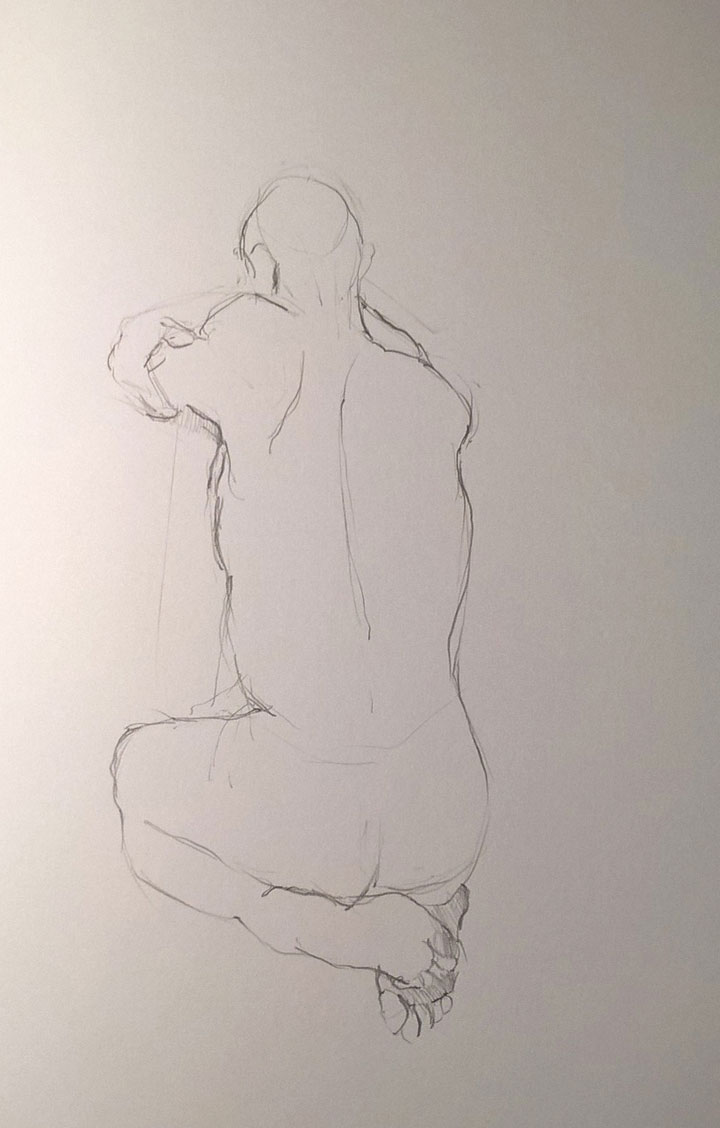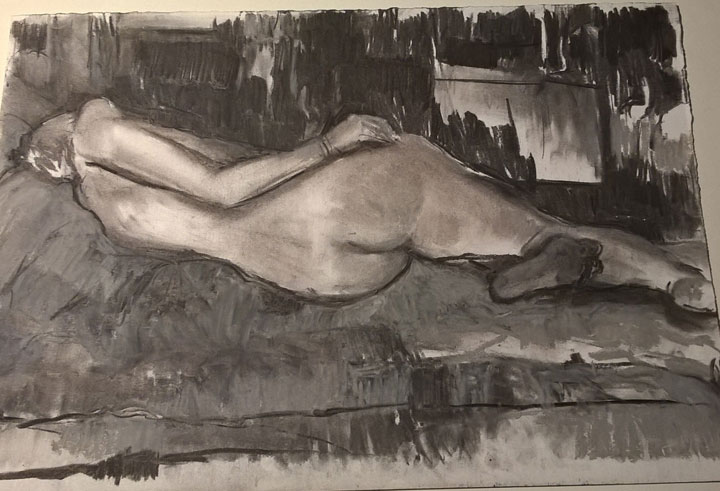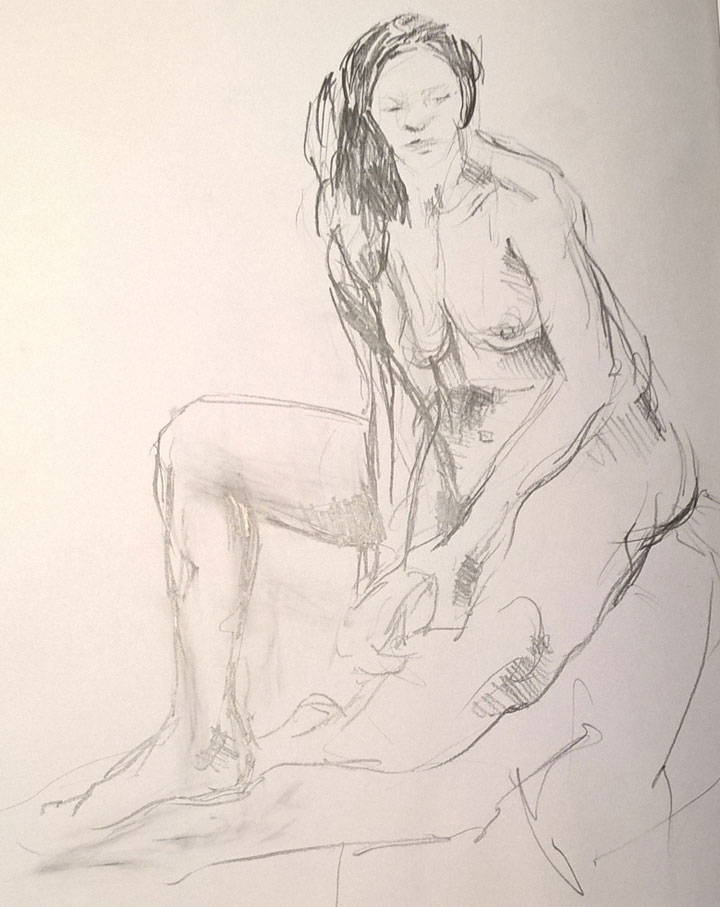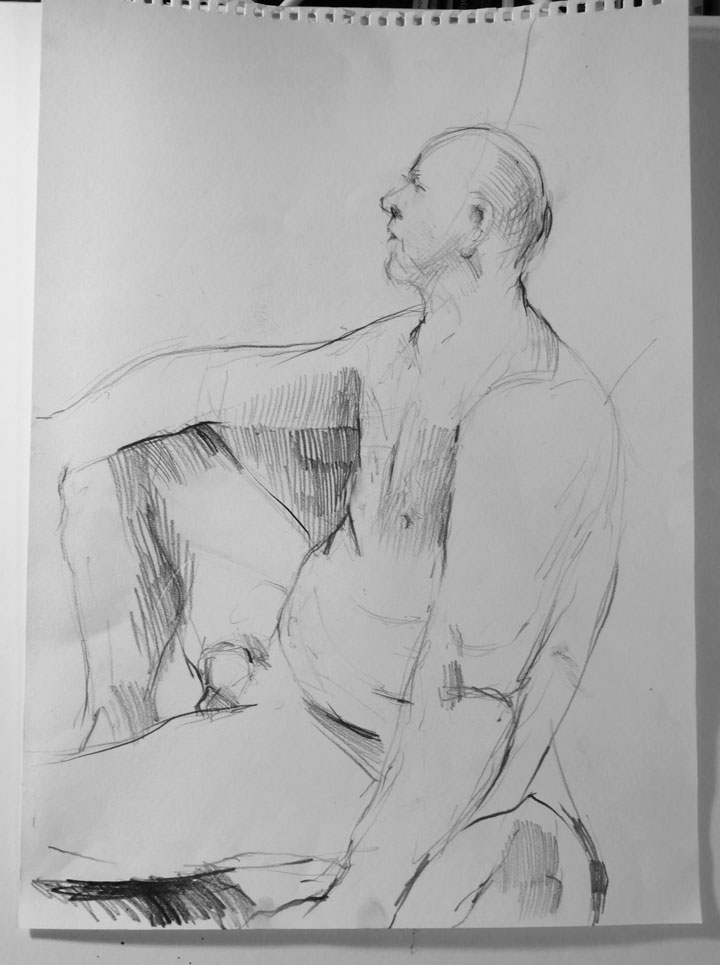Expressive Drawing from a Life Model
Wednesday 6th August 2025 for 3 days — Cost: £195
Tutor: Laura Degenhardt
Bookings for this course have now ended
A tutored three-day life drawing course, working live from a professional (unclothed) model.
These sessions for artists with some experience of drawing a life model (or the introductory 2-day course ‘Introduction to Drawing from a Life Model, 4-5 August, Summer School) will be a guided exploration of the elements of expressive drawing from life.
You’ll increase your understanding of key ideas in drawing from life, such as volume, tone and contour, and think about perspective and composition. We’ll be using a range of materials to explore mark making that best captures our subject. You’ll be encouraged to set aside preconceptions about getting things ‘right’, and to try new approaches to drawing that may yield surprisingly useful tools for later life drawing sessions with or without a tutor.
As the course progresses, you will focus on longer poses, and think about how to draw and paint the human form in mixed media, challenging ideas about ‘traditional’ media and enabling you to gain confidence in ‘just trying things out’, whatever the outcome.
The third day of the course will provide an opportunity to work from one or two long poses over a day, allowing for a really sustained study. By the end of this course, you should feel that you have the tools that you need to continue life drawing independently, if the discipline is new to you, or to develop new areas of your practice.
Additional Fee
£45 for model over the two days. Payment by cash or card on the first day of the course, please.
Materials to Bring
- Drawing paper (sketchbook with A3 or A2 light cartridge paper or loose sheets (tutor will also have some A1 sheets to buy)
- Drawing board to fit your paper. This can be a sheet of foam board, sturdy card from back of a paper pad, MDF, plywood etc. Tutor has a few A2 and A1 boards to buy or borrow
- Large bulldog clips to hold paper on board and/or masking tape
- A supply of ‘willow' charcoal in a couple of different thickness (not extra thin). Minimum 4 sticks
- A stick of white chalk (children's or blackboard chalk is ideal)
- Cheap plastic eraser (not putty), pencil sharpener and ‘firm hold’ hairspray or artist’s fixative to fix charcoal
- Any drawing materials that you feel like bringing, to experiment: for example, felt tip pens, chalk pastels, oil pastels, drawing pens, crayons, chalks, compressed charcoal, chunky graphite, etc.
- Optional: A portable free-standing folding easel
- Any water-based painting materials you feel like bringing, to experiment: for example, paints, brushes, palette, pots, rags, canvas boards or canvas, acryllic medium
